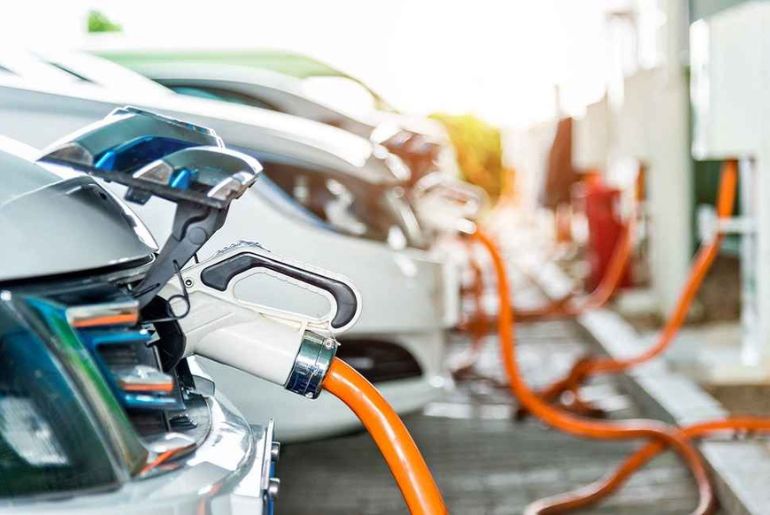According to the International Energy Agency, electric vehicles accounted for over 20% of global sales in 2024.
However, McKinsey research shows that consumers are still concerned about billing complexity.
Through a partnership with ev.energy, a vendor of intelligent EV charging software, JLR is investigating ways to address these issues.
The goal of this collaboration is to make EV charging more affordable and sustainable for customers.
As a result of the partnership, a pilot programme in the UK has been launched to test the integration of ev.energy’s software with ten electric Jaguar I-PACE cars.
In order to improve the charging schedule during grid-friendly hours and highlight members’ use of renewable energy, the software enables a smooth interaction with JLR’s connected car platform.
JLR intends to implement this cutting-edge technology widely throughout the US, UK, and EU markets after the pilot phase.
“Our work with ev.energy is testament to the power of corporate-scale-up collaboration in unlocking fresh ideas to solve some of our industry’s biggest challenges,” says Swarna Ramanathan, Chief Strategy Officer at JLR.
“Together, we are creating and implementing a smart charging system that will satisfy the demands of our high-end customers.”
In order to lessen the strain on the grid and save user costs, it will facilitate the electrification transition by promoting energy efficiency.
Founded in 2018, ev.energy is a managed charging software platform based in London that aims to make EV charging easier, more affordable, and environmentally friendly.
By scheduling car charging at times that are advantageous to the grid and taking into account various aspects, including grid capacity, its all-inclusive platform intelligently controls the power requirements of EVs.
JLR’s investment division, InMotion Ventures, participated in a US$33 million Series B round for ev.energy, which was led by National Grid Partners.
To date, ev.energy has worked with over 55 utilities throughout the globe to control the energy flow and scheduling during EV charging.
“This initiative is a prime example of how an automaker and a software provider can work collaboratively to deliver a convenient, high-quality proposition, support the uptake of EVs, and alleviate grid pressures to make charging cost-effective,” says Nick Woolley, CEO and co-founder of ev.energy.
“We can learn more about how our Virtual Power Plant can support a grid with a mostly low-carbon supply and growing demand from EVs by working with JLR in the UK. These insights can be applied to other regions and markets.”
JLR’s investment in ev.energy through InMotion Ventures is a component of its innovation strategy, which aims to explore the creation of innovative technologies through collaborations with creative businesses.
Outside of ev.energy, JLR and Allye Energy have collaborated to develop portable battery energy storage devices using PHEV batteries that have been used for a second time.
Caesium Astro, another firm in the InMotion portfolio, works with JLR to develop cutting-edge in-car networking technologies.
Additionally, JLR and Waymo, a Google company, are collaborating to create and market autonomous Jaguar I-PACE automobiles.
In 2022, JLR and AI pioneer NVIDIA established a strategic alliance to create AI-enabled and automated driving services together.
All new Range Rover, Defender, Discovery, and Jaguar automobiles will be constructed on the NVIDIA DRIVE AI-defined platform beginning in 2025, utilising NVIDIA DRIVE Orin in the vehicle and NVIDIA data centre technologies for the cloud.
“Next-generation cars will transform automotive into one of the largest and most advanced technology industries,” stated Jensen Huang, the founder and CEO of NVIDIA, at the time of the announcement.
For the duration of their lives, fleets of software-defined, programmable automobiles will provide new features and services.
“We are excited to collaborate with Jaguar Land Rover to develop the most cutting-edge vehicles and reimagine the future of transportation.”

